WTO PUBLIC FORUM 2019
Public Forum 2019 - Views of the participants
Session organizers and exhibitors explain why taking part in the Public Forum's discussions is so important to them.
Latifa El Bouabdellaoui, Ministry of Industry, Investment, Trade and Digital Economy of the Kingdom of Morocco, Moderator of Session 68: Trade in services and its impact on development in African countries.
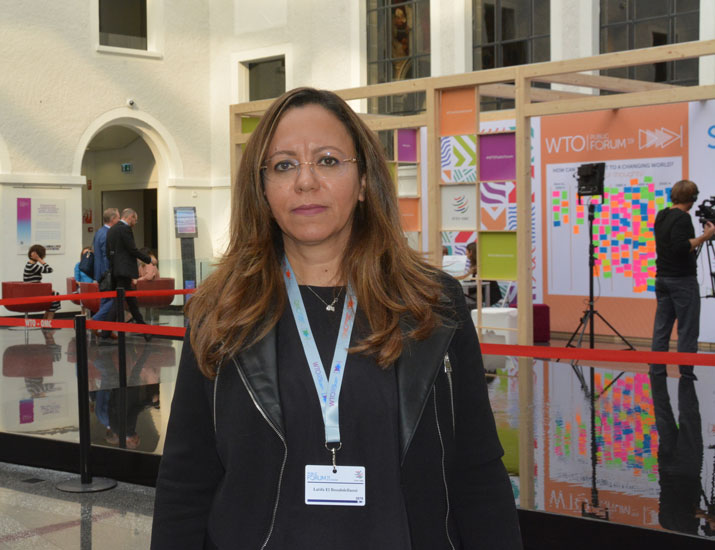
"The Public Forum is unique and different from other gatherings in that it allows many voices to be heard. Everybody has the opportunity to talk, share and communicate. There is a high level of participation from developing countries and it allows to convey messages from these countries, their concerns, their needs and their hopes.
We try to take part in this event every year, first and foremost to benefit from this exchange of information which is very useful when it comes to the policies we are driving in our country, but also to look at what is happening in other WTO member countries. It is also important for us to transmit several ideas and messages in which we deeply trust, notably about the importance of the development of trade in services, the importance of the economic development of the African continent and the essential role of the African Continental Free Trade Area. Finally, we also take part in the Public Forum to express our faith in the multilateral trading system".
Ofori Charles Antipem, Dext Technology Ghana, Exhibitor.
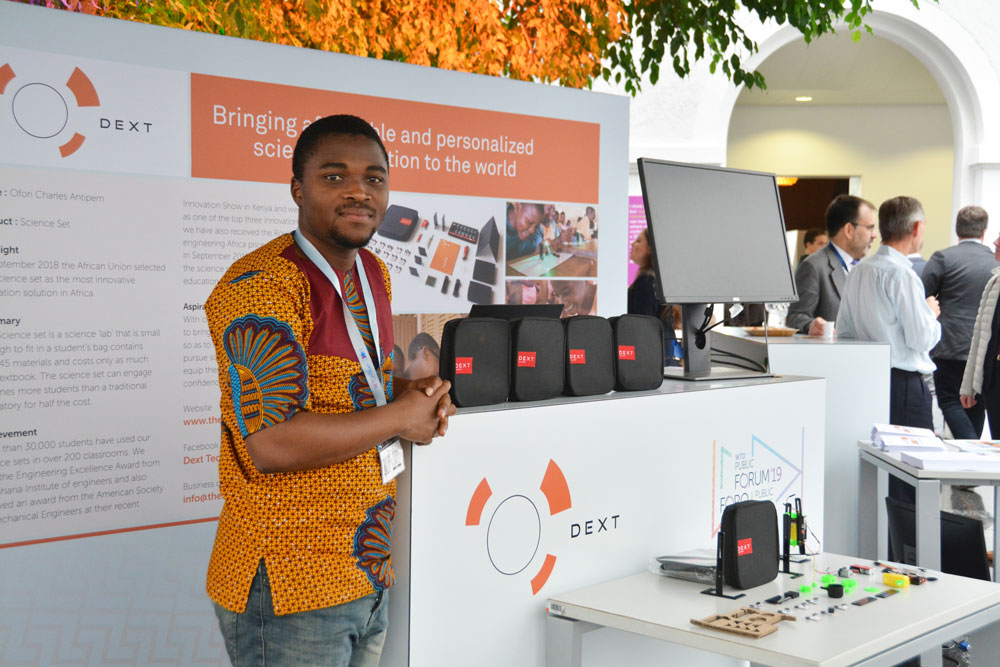
"This place is all about trade and about being able to export value, export innovation all over the world. The reason why I'm here is to show the world our innovation – a portable toolbox with which students can learn about fundamental 21st century concepts like green energy, electronics and robotics - and tell people that indeed, trade can happen regardless of where the innovation is from, or where it's going to. We worked with ITC and the African Union and we're looking at getting more support to expand the reach of our product. At the Public Forum I was able to meet with people from so many different places, doing so many different things. The kind of network we are building here is a big chance, especially for a young company like ours.
The idea of creating this toolbox was born when I saw my father, who was a science teacher, struggling to find materials to teach practical science. When I got into university and studied engineering, I thought it was time to find a solution. Because it's a problem that's been there for a long time, all over the world. Young students are shying away from science because they think is difficult. The Science set is a practical way for them to learn about technology, express their creativity and develop an interest for science."
Torbjörn Fredriksson, United Nations Conference on Trade and Development (UNCTAD), Moderator of Session 25: Value creation and capture in the digital economy: Implications for developing countries.
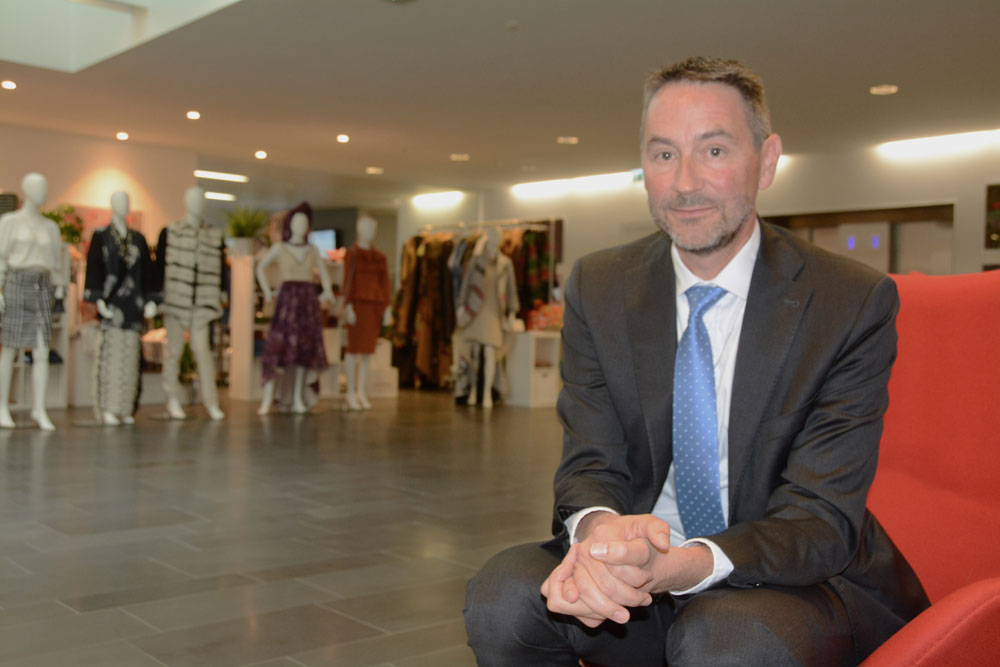
"The issues that are being discussed at the Public Forum are extremely relevant for the work that we do. During the session we brought out some of the lessons learned from our recent publication, the Digital Economy Report 2019. This is one of many efforts to engage stakeholders in a discussion on how really to adapt our policymaking to a more digital environment.
A lot of the trade frictions that we're seeing around the world right now are linked to technology disruptions that we're seeing: the value chains and productions systems are rapidly being reformed or reorganised. There's a need for more policy dialogue on how to adapt the policy framework and the rules setting in this area. Surely the Public Forum can contribute in that context."
Antoinette Hage, Sovereign Strategy (UK), Moderator of Session 4: Crafting a regulatory regime that supports the digital economy and young entrepreneurship.
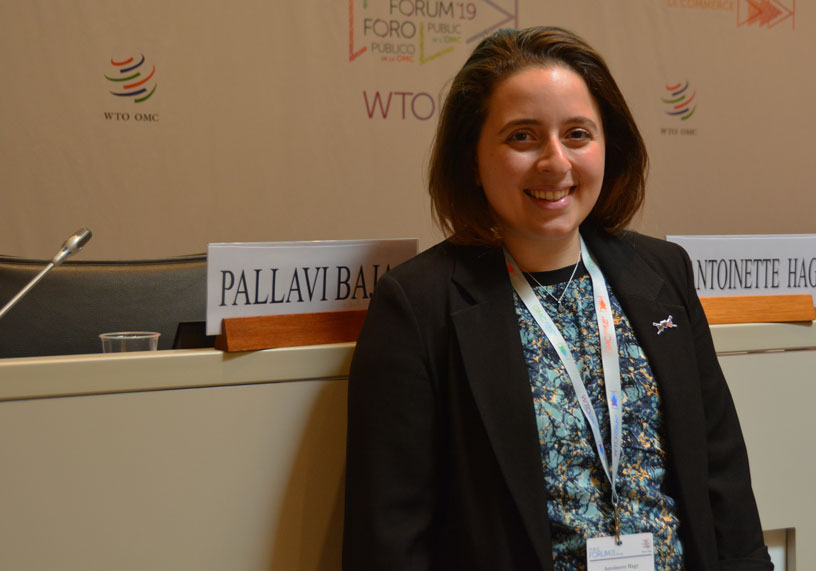
"I work for a political advisory firm which is involved in the debate around data, AI and regulation of technology for big corporates, fintech’s and the health industry. For me, coming to the Public Forum is about moving into civil society, with the view of creating regulation that makes people's lives better. Participating in this event gave me a refreshed international insight into what's going on and how people around the world are affected by different decisions.
I am really excited that everyone has come down from every corner of the earth. I think the plurality of voices when it comes to international regulation and rulemaking is really important, as opposed to listening to very limited voices. There was lots of different expertise in the room. Some participants came from very in-depth technical backgrounds, some had certain insight into how things have been done in the last 20-30 years. Other people came to contribute by asking a question, or to understand where the direction of a future policy might be going and may be that helps them plan where they want to be in the future with their small businesses."
Lisette Ebongue and Flavien Kouatcha, Save our Agriculture SARL, Exhibitors.
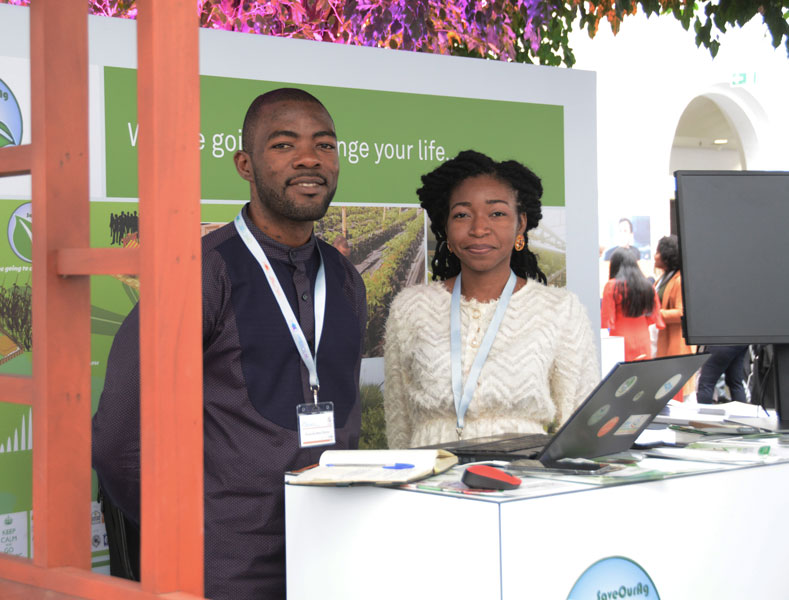
"We are a young Cameroonian enterprise producing organic food using aquaponics. This method combines agriculture and aquaculture, using fish manure as natural fertilizer for plants which in turn purify water. The Public Forum is a big event which allows small businesses like ours to reach out beyond our region and our continent. It is an opportunity to leverage our know-how and to promote our products.
It is also about meeting with potential investors to make our enterprise grow thanks to new partnerships. Some people showed a strong interest in our activities and would like to implement our process in Europe".
Elena Stankovska-Castilla (right), International Telecommunication Union, Exhibitors.
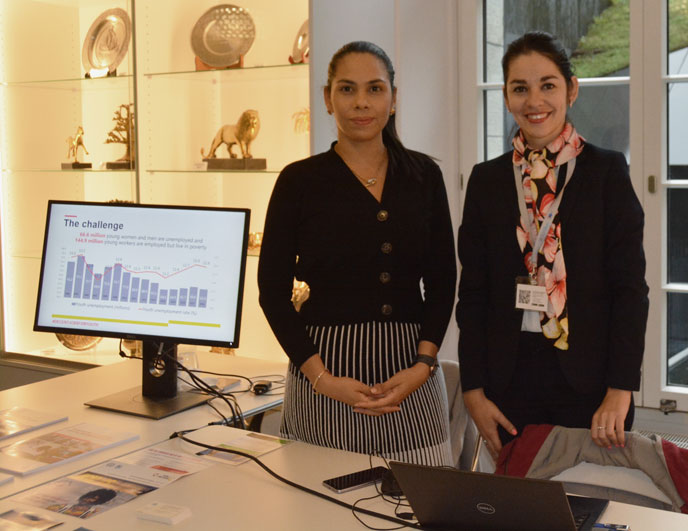
"Coming to the Public Forum is a chance for the ITU to showcase its work, but also to reach out to all the various stakeholders. I have not had that many opportunities to reach out to the private sector and here I met with many business people. Many entrepreneurs attended our session, along with people from international organisations. A lot of them were concerned with how infrastructure and tools are available for businesses to catch up. Indeed, while some businesses which have all the right tools to reach new markets are thriving, others don't and for them it is challenging times.
At the same time, we're excited to tune into all the discussions that have been happening and to learn more and understand how trade is affecting society, and how the digital economy is thriving. It's interesting to be here as an international organisation, but also as an individual. I'm part of ITU's development sector and it was very interesting to see how we can have a more inclusive and equal trade and how digital skills and capacity building can fit into that."
Kerstin Plank and Cindy Schmid, "The Force", Exhibitors.
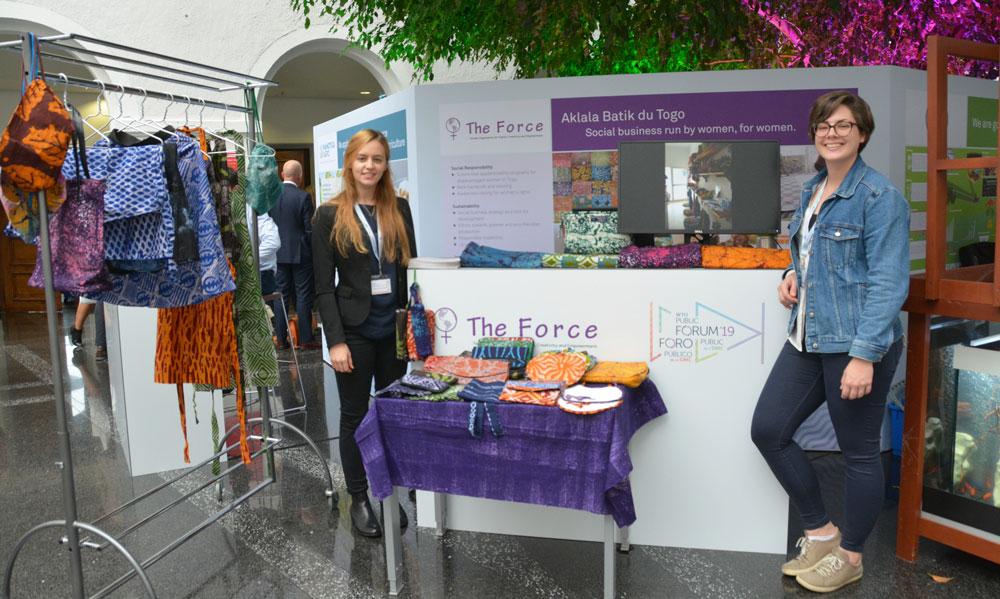
"We are volunteers for the Female Organization for Rights, Creativity and Empowerment which supports Aklala Batik, a Togolese social business managed exclusively by women processing and exporting Batik printed fabrics. As a small NGO it's quite unique to have an exhibition stand at the Public Forum. It's usually hard for us to get a stage as we compete with big names like Greenpeace and Amnesty. Thanks to the Public Forum we are finally on that front stage: we are the only NGO in the Atrium and people notice us.
In addition, we got some important contacts for many future partnerships".
Sylvester Wullo Bagooro, Third World Network Africa, Moderator of Session 11: Where is Africa in the next chapter of the WTO?
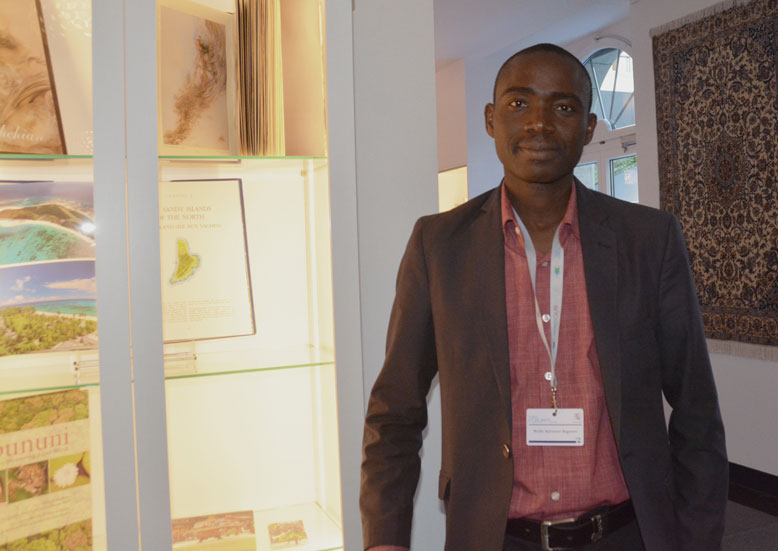
"Our approach has been how trade agreements impact on Africa's development, and we've been working on this issue since 1994. We have been involved in all the Ministerial Conferences, from Singapore, down to the last one in Buenos Aires.
However, coming to the Public Forum is also important because every forum brings new perspectives and new people. Some delegates are here for the very first time, some students too. So there are new crops of people who come and can hear about different perspectives and not just one side of the story. The Public Forum is a platform where different views can be expressed, where people can talk, both old and new stakeholders. It is about cohesion and cross fertilisation of ideas. And we bring back the views that we think are important for Africa going forward. The WTO is the institutional home to multilateral trade issues and we need to sustain it."
Daniel Solana, International Labour Organization (ILO), Exhibitor.
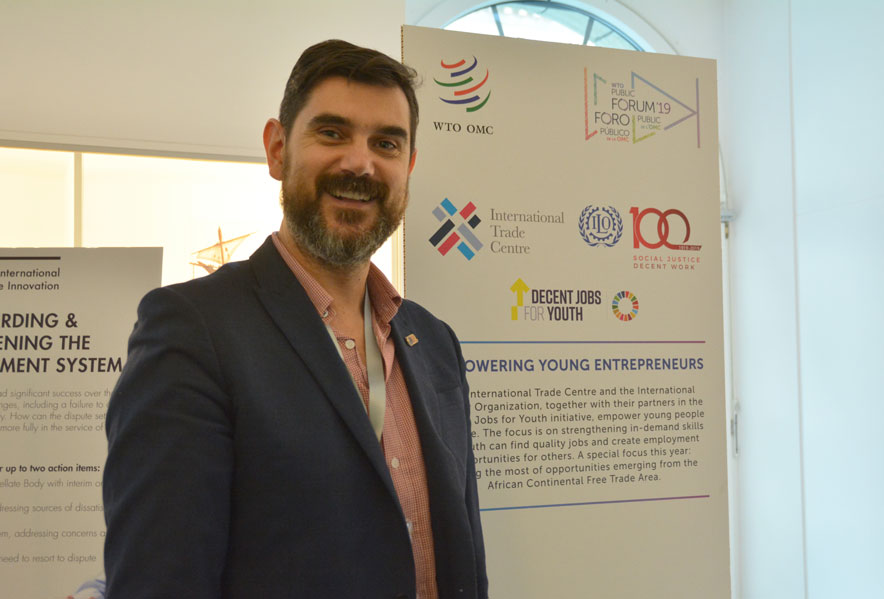
"The Public Forum is a very interactive event that allows us to get direct feedback from visitors and participants. In addition, this year's topic, "Adapting to a changing world", is of particular interest to us as it is in line with the ILO's Centenary Declaration for the future of work which was adopted in June this year.
For us, being here is also a great opportunity to share and spread our experience, notably regarding the Global Initiative on Decent Jobs for Youth which is the first United Nations system-wide effort supporting the youth employment under the umbrella of the 2030 Agenda for Sustainable Development. The most interesting is that the four pillars that are part of the Global Initiative (which are a global alliance, joining resources, sharing knowledge and action) are being discussed at our stand."
Lucas Ferraz, Ministry of Economy of Brazil, Moderator of Session 46: Striving in the digital world: How innovative start-ups are changing the services landscape in Latin America.
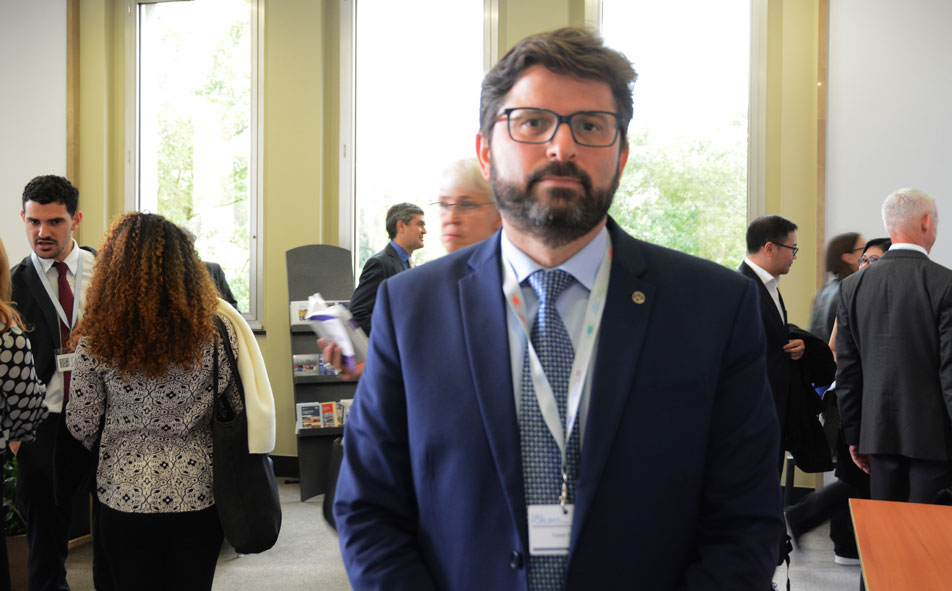
"I have been participating in the Public Forum over the last years as a professor and I realised the importance of this event which is the opportunity to interact with the greatest trade specialists and to have access to different perspectives of the same topic.
For me it was very important to call the attention of the Brazilian Government to the relevance of this forum. This is the first time that the Secretary of Foreign Trade in Brazil organises a session. It was a very interesting session, we managed to debate lots of very interesting topics, not only for Brazil but also for Latin America and I'm very happy with the results."
Rachel Noble, ActionAid UK, Organizer of Session 5: Trading in women's rights: How does trade in public services impact on gender equality and sustainable development?
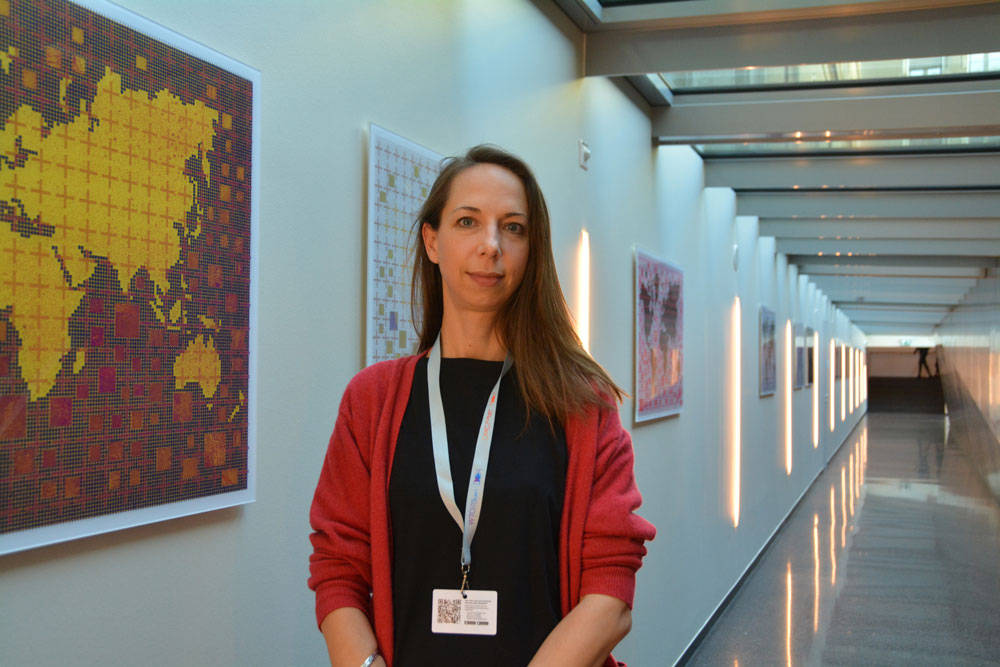
"As an international NGO, we work with women and communities to address poverty and inequality both locally and by addressing macro-economic policies put forth by institutions like the World Bank, IMF, and World Trade Organization.
We came to the Public Forum to draw attention to the ways in which global trade policies can impact on public services. Public Services are essential to women's rights, because of the differentiated role that women play in the economy, notably their vastly disproportionate share of unpaid care work, as well as the disproportionate levels of gender-based violence that they endure. To ensure that they're accessible to all women, particularly those from the poorest and most marginalised communities, it's in our view essential that public services are publicly financed through systems of progressive taxation and publicly provisioned."
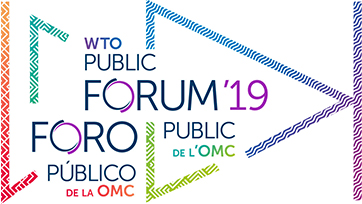
Share
> Problems viewing this page?
Please contact [email protected] giving details of the operating system and web browser you are using.